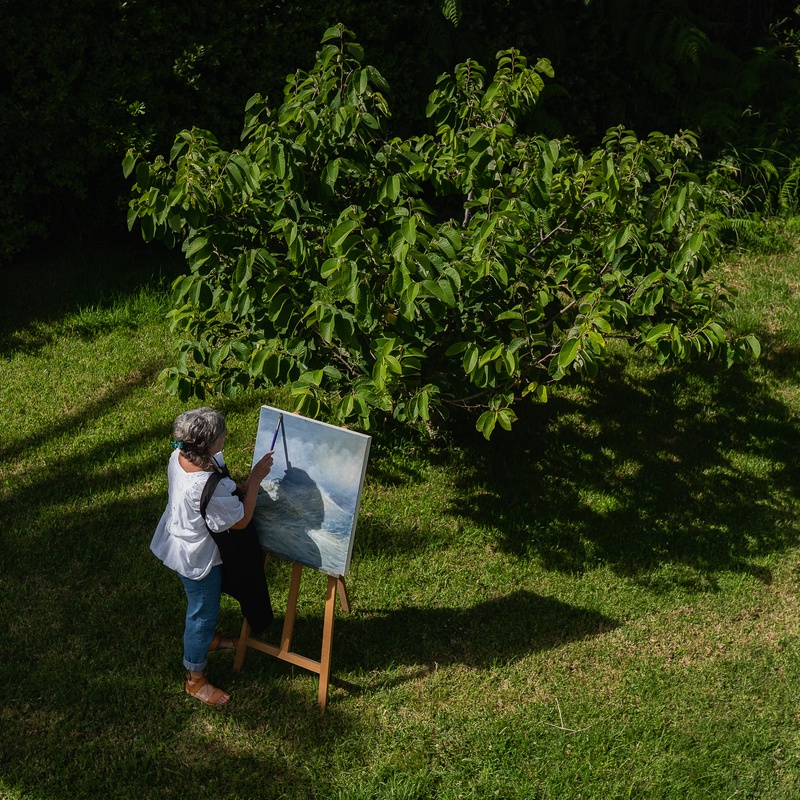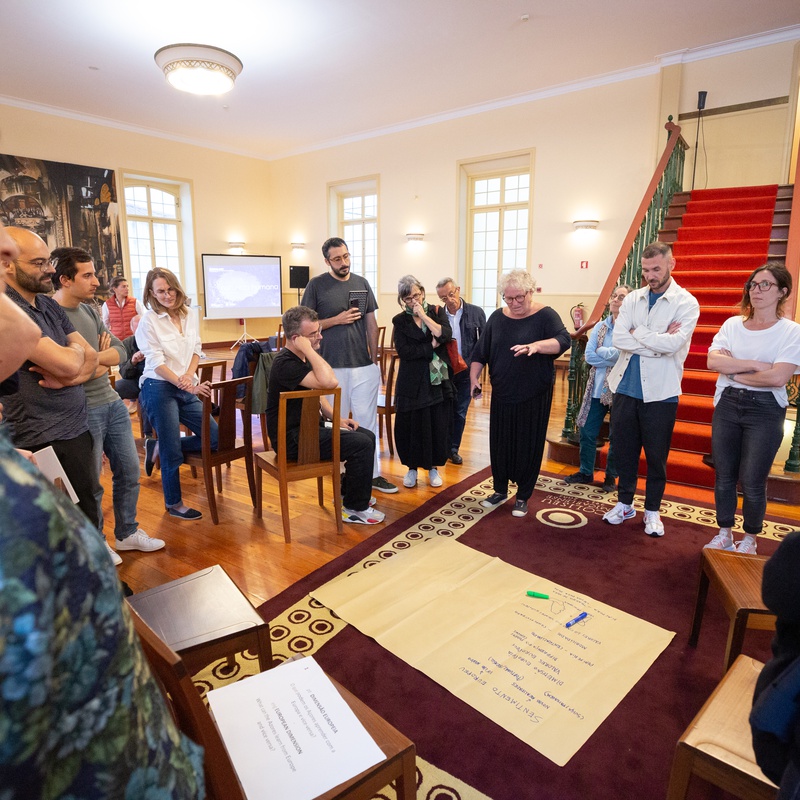
Culture is a changing element and a driving pillar of knowledge
The Mayor of Ponta Delgada, Pedro Nascimento Cabral, said today that “Culture is a changing element and a driving pillar of knowledge and thus of the progress of societies”.
The Mayor was speaking at the opening of the second Webinar of the "Hand in Hand - the power to inspire" pilot programme, which he considered to be "a strengthening factor and an essential counterpart to defend Ponta Delgada's candidacy for the European Capital of Culture Azores 2027".
In his welcome speech to the artists who presented new projects today, Pedro Nascimento Cabral congratulated them for the choosen themes, particularly for the "common denominator of preserving our cultural identity, in what distinguishes us, whether in music or in gastronomy, valuing and projecting our culture through your creativity, your ability to involve different generations and different cultural visions and finally, but no less importantly, for your ability to highlight the existence of the intrinsic relationship of our culture with our heritage".
Once again, he took the opportunity to thank Cresaçor for its cooperation and to congratulate the involvement of this institution in "opening doors and opening minds to the vision that culture, more than a creative process, is an inclusive process in which all participants, all generations, all sensibilities - from the most traditional to the most inventive ones - have a word to say and an experience to share and discover".
"This is exactly what we want with Azores 2027, to encourage the sharing between those who are here and to disclose what makes Ponta Delgada and the Azores different from other candidacies for this project, i.e., the cultural dimension of an archipelago that, being small in territory, is not isolated from the world. It is rich in traditions, but equally rich in its capacity for integration and sensibilities, which have not diminished us in time and space, but that have given us and continue to give a unique Atlantic and universalistic cultural identity" – he concluded.
One of the projects presented today was that of Henrique Constância ("Vira, Mozart!"), which aims to exchange experiences between people who share the taste for music, harmoniously integrating classical and traditional folk music, in particular from S. Miguel Island. Mankes Piano Quartet, a musical group from Amsterdam, will play classical music, namely Mozart’s musical pieces that have many folk music features in common. This international group will promote musical workshops and come to meet traditional music groups in São Miguel Island, namely in Lagoa ("O Grujola" Folklore Group) and in Ribeira Grande (Castanholas – Castanets Group from Rabo de Peixe). The participating groups will get together and rehearse with the visiting musicians, having the opportunity to present their music and have a close contact with musical genres that are not part of their daily life.
Luís Senra presented "Reconnective Nature", a social intervention in the music field that uses nature as a starting point to work awareness and attention for what is around and within us. The development of these activities allowed those involved to rediscover an awareness of nature, the way it is perceived, its importance and also how one can use it to learn to manage emotions, to reflect on life, society and education, to listen, to speak, to give space to others, respecting them and to be creative and imaginative, with nature having a role here as a stimulant for the inner child and the deconstruction of idealisations imposed by society and which often create isolation or exclusion.
Cláudia Camacho brought "Returning the Root to the Square”, an innovative proposal in the olfactory-gastronomic field developed by her – the first independent woman perfumer in Portugal – and by Nuno Miguel Dias, a gastronomic anthropologist who writes gastronomic articles for Vogue magazine.
In this Webinar Nuno Malato presented "Counter Postcard", in which he proposes to develop the edition of a "counterpostcard", in an act of critical and constructive counterpoint of conscience. Using the impact of synthesis images, he intends to deepen themes and interconnected domains that represent the complex archipelagic territory of the Azores.
As a reminder, "Counterpostcard" is targeted at the archipelago’s visitors and inhabitants, who will inevitably be caught by the eye.


